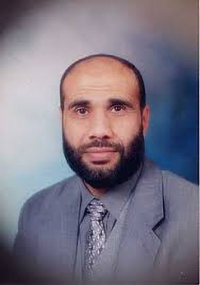
Nablus, Palestine | Unknown - Unknown
Jamal Mansour was born in Balata Camp, Nablus, and emerged as a significant figure in the Palestinian resistance movement. As one of the founders of the Islamic Resistance Movement (Hamas), Mansour played a crucial role both intellectually and organizationally, particularly within the West Bank. His contributions were instrumental in establishing and solidifying Hamas as a political actor. Mansour's work extended beyond militant activities; he was also deeply involved in organizational tasks and charitable efforts, particularly those aimed at supporting the families of martyrs. His involvement in these areas underscored his commitment to the movement's broader social and political goals, emphasizing the importance of community support and resilience in the face of occupation. During the Second Intifada, which began in late 2000, Mansour's role became even more prominent. The uprising saw a surge in Palestinian resistance activities against settler-colonial infrastructure, and Hamas was at the forefront of this resistance. Mansour's organizational skills were crucial during this period, as he helped coordinate various activities and support networks that were vital to sustaining the intifada. His dedication to the cause and his prominent position made him a target for Israeli forces. In 2001, Mansour was martyred in an Israeli airstrike that targeted his car. This attack highlighted the Israeli strategy of targeted assassinations against key Palestinian figures, aiming to disrupt the organizational capabilities of groups like Hamas. Mansour's death was a significant blow to Hamas and the broader Palestinian resistance movement. However, it also further galvanized supporters and highlighted the risks those involved in the struggle faced. His legacy continued to inspire many within the movement, and he was remembered for his intellectual contributions, organizational acumen, and unwavering commitment to the Palestinian cause. Overall, Jamal Mansour's life and work reflect the complex dynamics of the Palestinian resistance, blending intellectual pursuits with militant activism and community support. His martyrdom underscored the personal sacrifices made by those involved in the struggle and the ongoing challenges faced by the Palestinian people in their quest for self-determination.